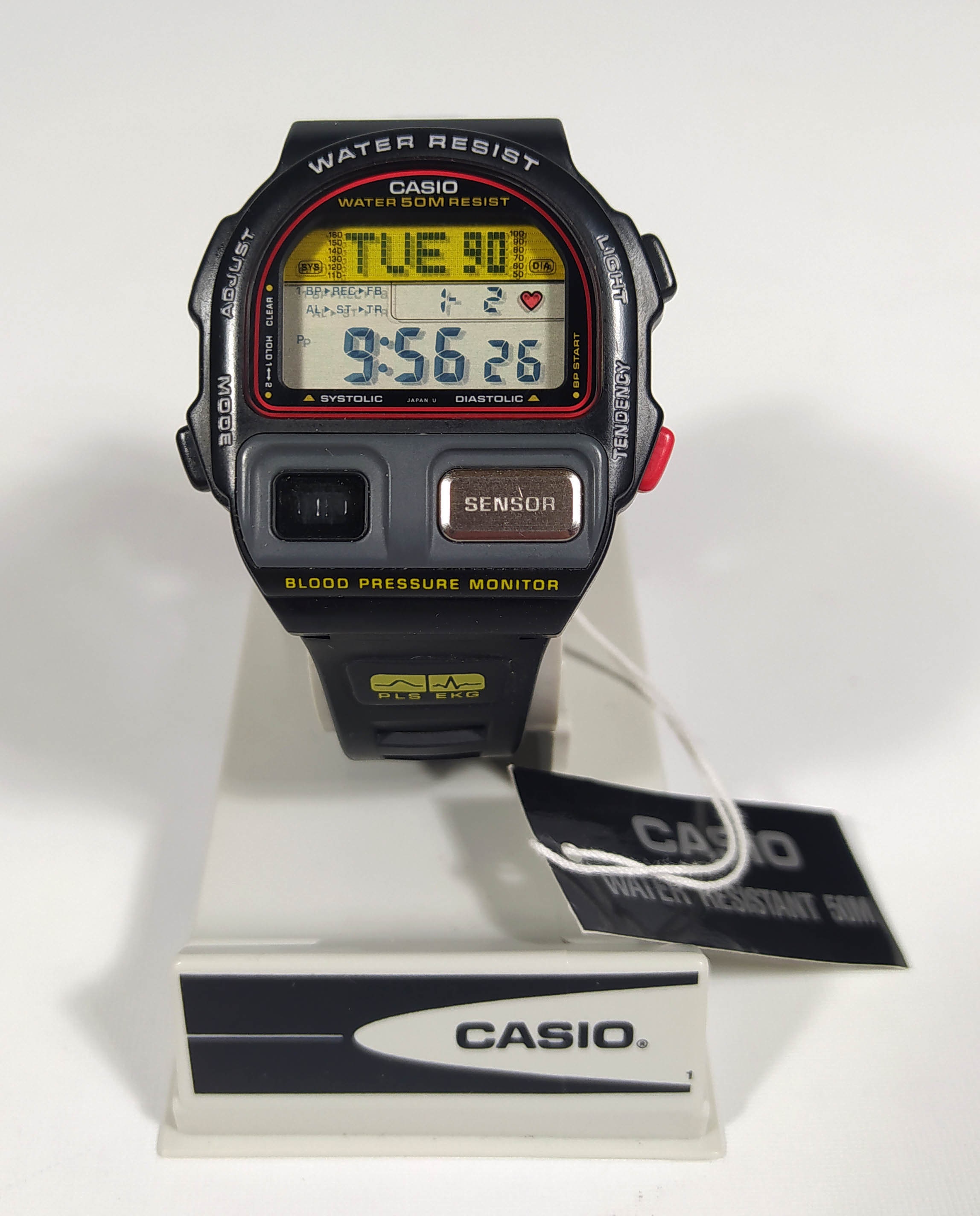


Those leads measure the electrical signal that accompanies your heart beat. The pad on the right is one lead of a two-lead ECG probe that's built into the watch.
#CASIO BP 100 USER MANUAL MANUAL#
The BP-100 manual includes a schematic of this photosensor technology. The pad on the left reads the pulse using a photosensor, exactly like the JP-100W. The watch actually uses a combination of two sensor technologies. But what makes this watch special is the blood pressure functions. It's got a built-in microlight, along with alarm, stopwatch and timer modes. I'm not sure how successful Casio was in their marketing strategy, but it's interesting to note.Įnough about packaging, get on to the watch already!Īs a watch, the functions are pretty standard. The special packaging and redundant instructional material leads me to believe that Casio intended this watch to be used by people unfamiliar with technology. The blue manual is the abbreviated version that briefly covers the blood pressure functions, whereas the black one covers the entire watch in detail. I wonder what it sounds like!Īnd if you lift that tray, you will find not one, but TWO manuals.

Since I got this watch in 2008, I didn't have a cassette tape player to listen to the tape. In that tray, you will find an instructional audio cassette tape. Opening that case reveals the watch seated on a red velvet-like tray. Removing the plastic shrink wrap and outer sleeve reveals a plastic case. I have seen a long slender cardboard box version as well as the version shown here. Not only that, it was sold in different custom package versions. Unlike other Casio watches of its time, this model came in a custom designed box.
#CASIO BP 100 USER MANUAL SERIES#
The BP-100 is not a direct descendant of the JP series watches, but certainly builds on that technology.) * (Just a note, Casio's sequel to the JP-100W was the JP-200W, which was released in 1992. (Or was it 1992?) It claims to measure not only the heart rate, but also the blood pressure! After the success of the JP-100W pulsecheck, Casio put that concept on steroids and released this model in 1993. Today's feature is Casio's BP-100 blood pressure monitor watch.


 0 kommentar(er)
0 kommentar(er)
